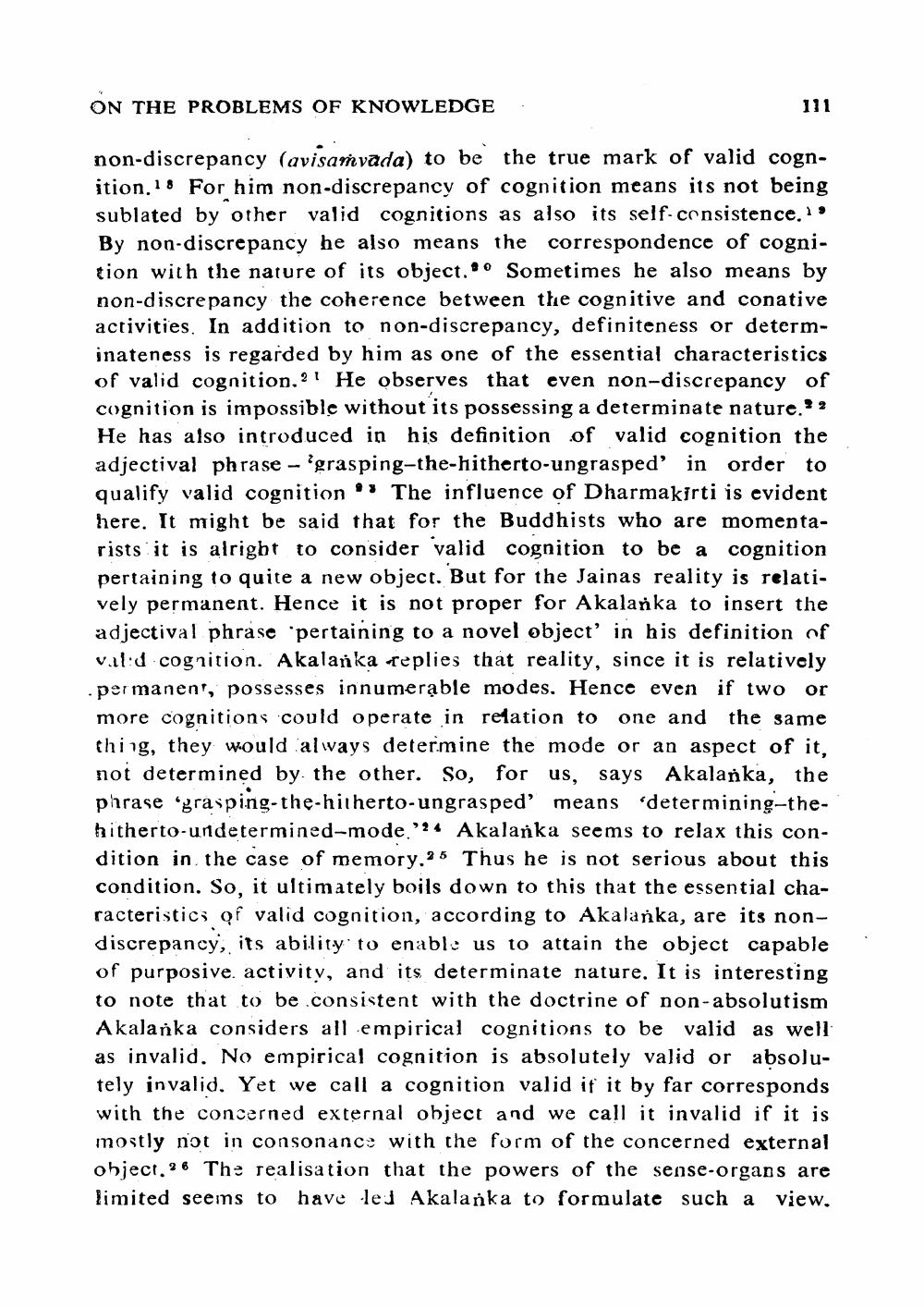________________
ON THE PROBLEMS OF KNOWLEDGE
111
non-discrepancy (avisamvada) to be the true mark of valid cognition. 18 For him non-discrepancy of cognition means its not being sublated by other valid cognitions as also its self consistence." By non-discrepancy he also means the correspondence of cogni. tion with the nature of its object..Sometimes he also means by non-discrepancy the coherence between the cognitive and conative activities. In addition to non-discrepancy, definiteness or determinateness is regarded by him as one of the essential characteristics of valid cognition.?! He observes that even non-discrepancy of cognition is impossible without its possessing a determinate nature. 2 He has also introduced in his definition of valid cognition the adjectival phrase - 'grasping-the-hitherto-ungrasped' in order to qualify valid cognition !! The influence of Dharmakirti is evident here. It might be said that for the Buddhists who are momentarists it is alright to consider valid cognition to be a cognition pertaining to quite a new object. But for the Jainas reality is relatively permanent. Hence it is not proper for Akalanka to insert the adjectival phrase 'pertaining to a novel object in his definition of valid cognition. Akalanka replies that reality, since it is relatively permanen', possesses innumerable modes. Hence even if two or more cognitions could operate in relation to one and the same thing, they would always determine the mode or an aspect of it. not determined by the other. So, for us, says Akalanka, the phrase 'grasping-the-hitherto-ungrasped' means 'determining-thehitherto-undetermined-mode."?4 Akalanka seems to relax this condition in the case of memory.25 Thus he is not serious about this condition. So, it ultimately boils down to this that the essential characteristics of valid cognition, according to Akalanka, are its nondiscrepancy, its ability to enable us to attain the object capable of purposive. activity, and its determinate nature. It is interesting to note that to be consistent with the doctrine of non-absolutism Akalanka considers all empirical cognitions to be valid as well as invalid. No empirical cognition is absolutely valid or absolutely invalid. Yet we call a cognition valid if it by far corresponds with the concerned external object and we call it invalid if it is mostly not in consonance with the form of the concerned external object.26 The realisation that the powers of the sense-organs are limited seems to have led Akalanka to formulate such a view.




